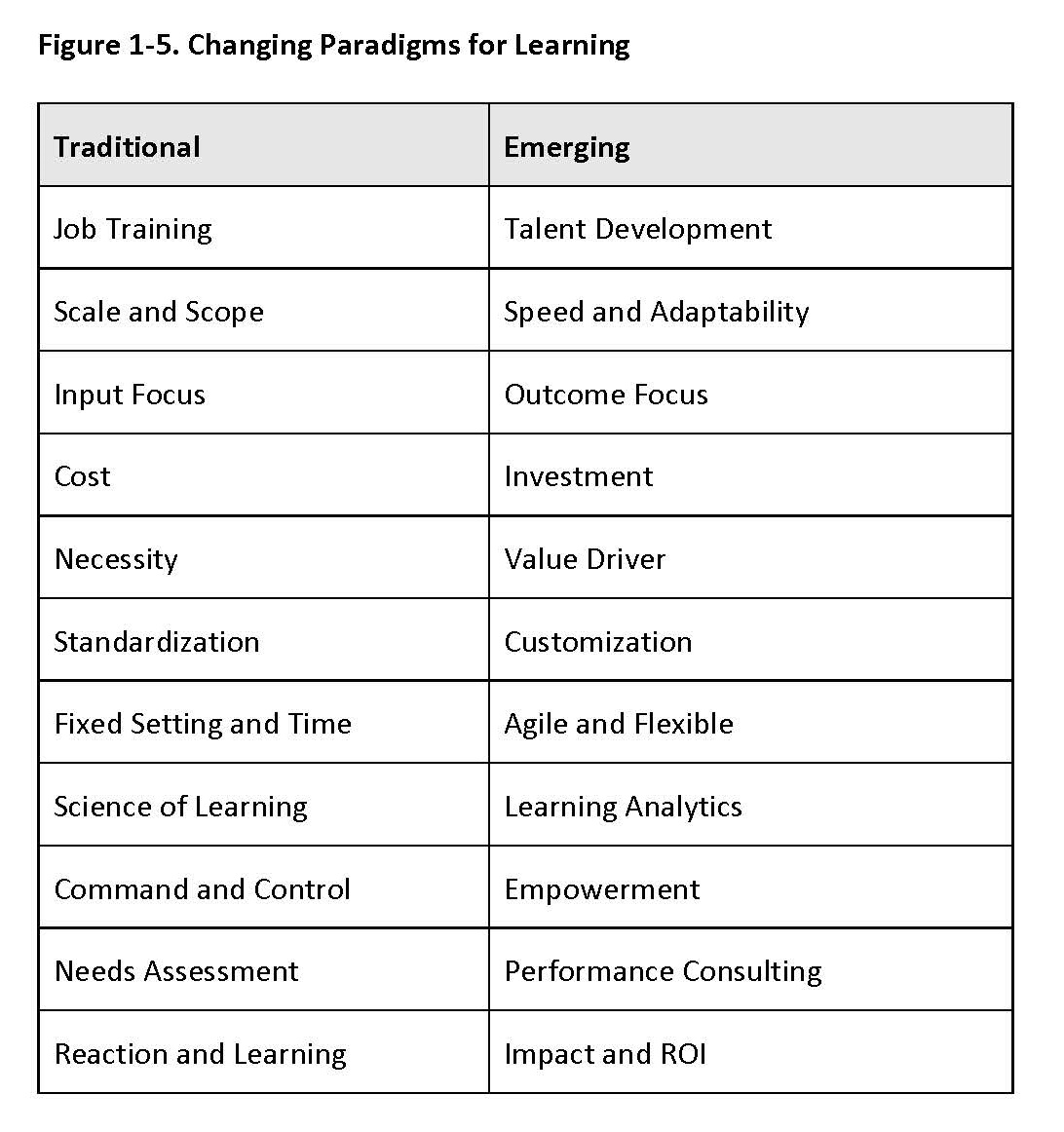Seven Disasters That Happen When You Don't Focus Your Learning on Results
Everyone can agree that learning is crucial to the success of any organization. Yet learning and talent development professionals often fail to show that their efforts are directly improving their company's performance. The result? CEOs and other key decision makers don't see the value of your program, and it runs the risk of ending up on the chopping block—along with your budget.
You need to demonstrate your value at every phase of the learning system. (Yes, this is most likely going to require a drastic change in how you initiate, design, deliver, and evaluate learning.)
More and more, CEOs are telling CLOs, "You say this program will impact our company's bottom line? Prove it!" Their new demands are the result of a paradigm shift that is reshaping many different aspects of the learning and development world and also the nature of the business world itself.

What this means is that learning professionals must keep specific, measurable business outcomes firmly in mind at every step of the learning and development process.
Learning and development professionals need to take a cue from other fields and rethink the learning process. Specifically, they need to design for success, with that success defined as credible data connecting the learning programs to the business. Our new book, The Business Case for Learning, offers up an eight-step process for doing just that.
When you don't focus your learning and development on results, damaging repercussions can occur. For example:
- Investments are made on perceptions. Most would agree that this is a dangerous way to fund a functional area. Sustainability comes into question when the funding is based on perception of value, intangible benefits, or other logical deductions.
- Middle managers cease to support investments in learning. Middle-level managers are critical to the success of learning and talent development functions. Participants in the program usually report to these managers. Because these programs normally take participants away from the time needed to perform their jobs, their managers need data to show what participants will do and accomplish with the new skills. Without these types of results, support will be minimal.
- The commitment for learning and talent development will diminish. Commitment translates into support from the top. The tangible evidence of commitment is the budget and resources for learning, and this includes the actions that top executives take to be actively involved in learning and support and encourage the learning process. Without business results, commitment will suffer.
- The influence of the learning function is diminished. It is hard to have a seat at the table when you are not clearly connected to the business value of the organization. Consequently, influence suffers, which hampers the ability to secure approvals and implement processes to get the work done.
- Budgets are curtailed or not funded properly. While budgets will be funded, the right programs may not be funded properly, or the total amount of funding may be less than needed to address the organization's needs. In tough economic times, the learning budgets are the first to go; during a recession, this sometimes happens in a very dramatic fashion. This is occurring now in some industries in the USA and in many other countries.
- The image of the learning and development function suffers. Some managers perceive learning and development as a "necessary evil." The image could be shifted to a perception of learning as a business-driving process, one that makes a difference to important metrics in the organization.
- Team satisfaction will diminish. All talent development stakeholders would like to see their contribution to important, bottom-line measures in the organization. This line of sight from each person's contribution to the business has to be clear. Without that connection, without evidence and proof that they make a difference, the team becomes concerned about the value of what they contribute. Nothing can build team morale more than seeing this connection, people knowing that they made a difference as individuals, teams, and an organization.
The cumulative effect of these consequences may be tough to measure, but they are almost certainly devastating, both to learning and development professionals and to the organization as a whole.
The approach our industry has followed for many years is not sustainable. Continue on the same path and you will lose budget, influence, and respect. You must alter your thinking to focus on results at every step of the learning cycle. This will increase your influence on the talent development investment in the future. Who knows? It might also save your company. iBi
Jack J. Phillips, PhD, and Patti Phillips, PhD, are co-authors of The Business Case for Learning: Using Design Thinking to Deliver Business Results and Increase the Investment in Talent Development. Jack is chairman of ROI Institute, a leading provider of services for measurement, evaluation, metrics and analytics, and Patti is president and CEO. For more information, visit roiinstitute.net.

